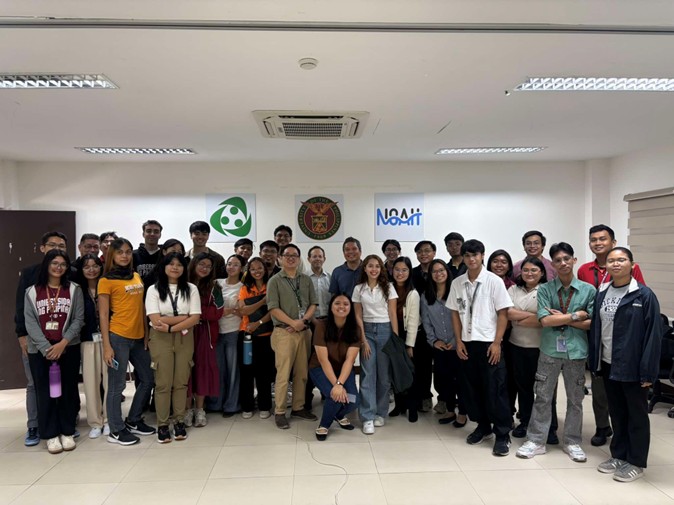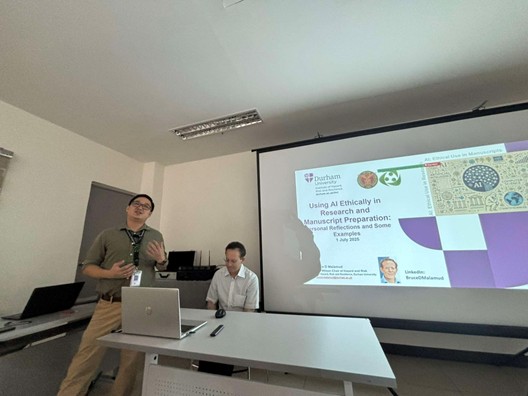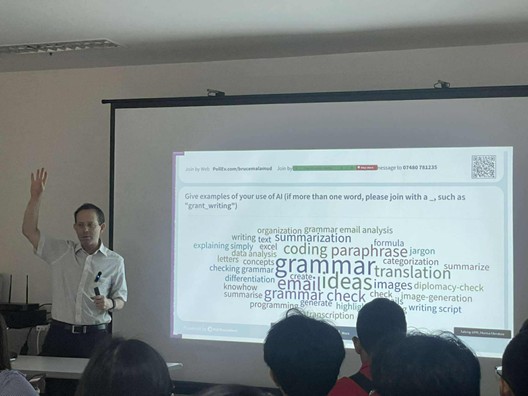On July 1, 2025, the University of the Philippines Resilience Institute (UPRI) held a timely and well-attended workshop titled ‘Using AI Ethically in Research and Manuscript Preparation: Personal Reflections and Some Examples.’ The event featured Dr. Bruce D. Malamud, Wilson Chair of Hazard and Risk and Director of the Institute of Hazard, Risk and Resilience at Durham University.
The session explored how artificial intelligence (AI) tools are reshaping academic practices, offering practical insights into how researchers can responsibly incorporate AI into literature reviews, manuscript drafting, and data interpretation. Participants were encouraged to critically reflect on the role of AI in their own workflows and were reminded of the importance of transparency, authorship integrity, and human oversight. The interactive format included live polls and examples, fostering engagement among attendees.



Prof. Malamud discussed the ethical considerations of using AI in academia, emphasizing the importance of avoiding generative AI and instead using it for organizing thoughts, providing ideas, and improving clarity. He highlighted the benefits of AI tools like ChatGPT for tasks such as grammar checks, email recrafting, and document review, while stressing the need for manual revision and dialogue with AI to achieve desired results.
Prof. Bruce also shared how he used AI to analyze a large database of academic papers on disaster terminology. He demonstrated how he used ChatGPT to create word clouds from paper titles, removing certain terms like “event” and “disaster” to reveal emerging patterns in how hazards and crises are described in academic literature. The process, which would typically take a month with a PhD student, was completed in about 10 hours using AI tools to interrogate the database and generate visualizations.
He also shared examples of AI use in non-academic settings and encouraged attendees to experiment more with uploading documents to AI tools for advice, noting that AI’s effectiveness depends on how well it is used.
The event forms part of UPRI’s ongoing efforts to advance thoughtful, responsible engagement with emerging technologies in research and education.
